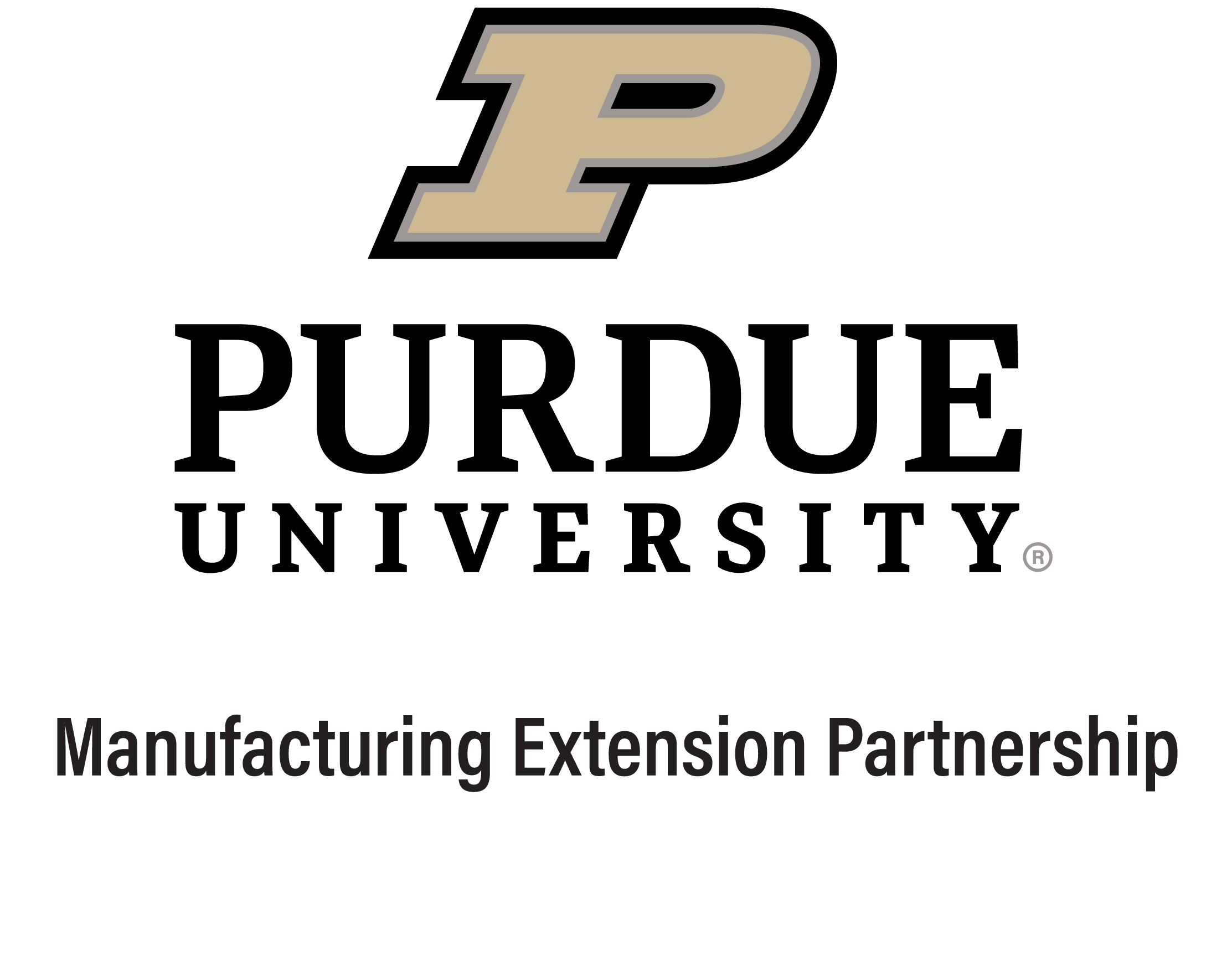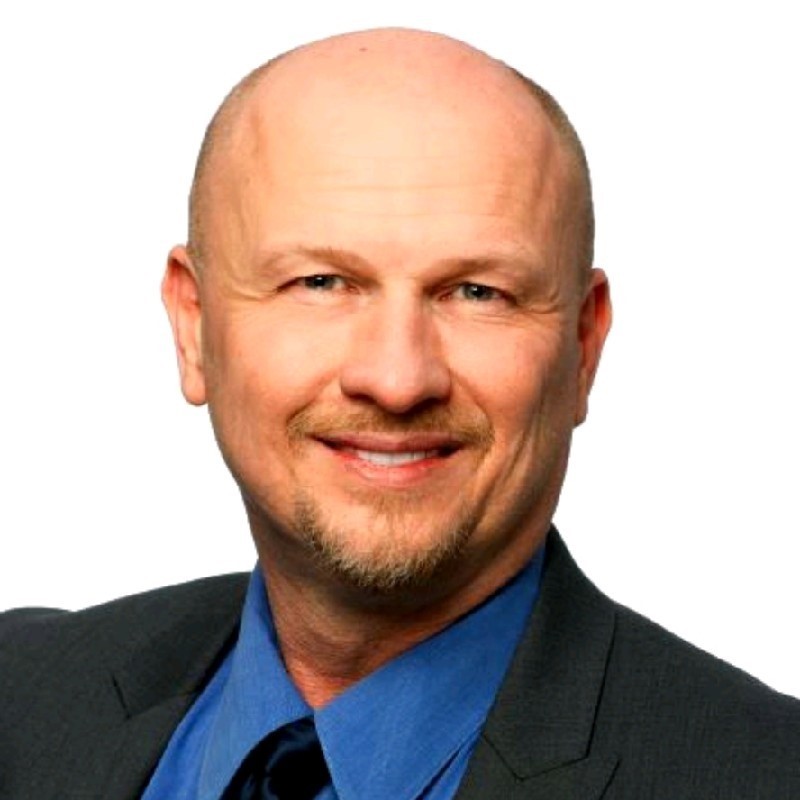Course Detail: MFG300 - Lean Practitioner I Certificate

The Mission:
To advance economic prosperity, health, and quality of life in Indiana and beyond. Purdue Manufacturing Extension Partnership (MEP) provides high value, affordable solutions to help businesses increase profitability. As advocates for Indiana's thousands of manufacturers, our staff leverages resources in both the public and private sectors to help identify areas of improvement, streamline processes, and ultimately increase competitiveness.
Intended audience: Manufacturing personnel, including technicians, engineers, and managers
Lean Practitioner I Certificate
Workshop 1 - Principles of Lean Manufacturing
Learn how to transition from a traditional manufacturing approach to that of a lean manufacturing environment. Waste is eliminated, productivity increases, and you gain a competitive edge in the marketplace. Topics discussed include the principles of lean manufacturing and how to apply them, standardized work, visual signals, batch-size reduction, pull systems, and more. Experience firsthand how lean improves quality, reduces cycle time, improves delivery performance, reduces WIP, and enables the "company" to show a profit.
Additionally, lean culture is discussed during this workshop. An organization's culture involves roles, beliefs, assumptions, and values that influence what gets done and how things get done. Successfully implementing lean manufacturing practices includes developing a culture of engaged employees and continuous improvement. This is no easy task. Learn about organizational culture and how developing a "lean" culture plays a key role in overall improvements. In addition to exploring the benefits of a lean culture, you'll also discover the challenges and barriers related to culture and culture change.
Objectives:
- Define "lean" as it relates to manufacturing.
- List and describe the eight wastes.
- Describe standardized work, 5S, visual controls, plant layout, quick changeover, batch-size reduction, point of use storage, Pull/Kanban, cellular flow, and total productive maintenance and how they fit into lean manufacturing.
- Explain what organizational culture is and how it is created.
- Explain the elements and benefits of lean culture.
- Explain how different personalities and communication styles affect teamwork and the ability to reach shared goals.
Experience first-hand how a 5S System reduces waste in a simulated production facility. Participants learn the concepts of the 5S System - Sort, Set in Order, Shine, Standardize, Sustain - and then apply them to transform a cluttered, disorganized, inefficient production area into an orderly and productive workplace.
The outcome is more than just a clean work area. The workshop shows participants how a 5S System can increase the value-added output per worker, with improvements in productivity, safety, and quality with savings going right to the bottom line.
Objectives:
- Describe differences in workplace appearance and functionality before and after the 5S process has been applied.
- Perform an in-depth audit of workplace organization and standardization through use of a Workplace Scan.
- Organize a workplace by applying the concepts of Sort, Set in Order, and Shine.
- Standardize procedures to maintain and control an organized workplace using visual controls.
- Explain methods to apply the fifth concept, Sustain.
- Describe how 5S can help to improve workplace environmental health and safety.
Workshop 3 - Value Stream Mapping (VSM)
Learn how to create a value stream map (VSM) of current-state and future-state processes. Value stream mapping is a lean technique that allows you to document, analyze, and improve the events that take a product or service from its beginning through to the customer. This technique helps the manufacturer understand the total flow of the value stream, see the sources of waste, determine common language about the process, show links between information and processes, develop an improvement plan, and prioritize activities.
Through the creation of a VSM, you will learn how to eliminate the waste in the system and achieve dramatic improvements to your processes.
Objectives:
- Define "value stream" and "value stream map."
- Describe the purpose of value stream mapping and how it relates to lean manufacturing.
- Describe a basic process for value stream mapping.
- Create a value stream map for a specified process.
- List the characteristics of a lean value stream.
- Identify potential improvements to a value stream map.
Quick changeover is a lean manufacturing technique that can improve manufacturing efficiency by significantly decreasing changeover time. Quicker changeovers can reduce manufacturing costs and increase flexibility.
Learn the fundamentals of set-up reduction in applying quick-change thinking to any type of setup or industry. This training focuses on attaining quick changeover through the systematic elimination of the internal components of a setup while streamlining the final procedure.
Objectives:
- Demonstrate a thorough understanding of quick changeover and setup reduction concepts and principles.
- Know how each step of the changeover improvement process contributes to setup reduction or elimination.
- Document all the tasks or elements that make up an existing changeover process.
- Apply the Single Minute Exchange of Die (SMED) system to analyze changeover tasks and identify improvements.
- Implement quick changeover improvements and monitor results.
- Develop a plan to standardize improvements.
Workshop 5 - Total Productive Maintenance
Total productive maintenance (TPM) is a structured approach to equipment maintenance that strives to achieve perfect production: zero unplanned equipment failures, zero small stops or slow running, zero defects, and zero accidents. It involves personnel at all levels in the organization, including operators, maintenance personnel, and leadership.
In this workshop, you'll learn what TPM is and how to apply it in manufacturing.
Objectives:
- Define total productive maintenance (TPM).
- Explain a process for implementing TPM.
- Describe how TPM relates to lean manufacturing.
- Explain the concept of autonomous maintenance.
- Define overall equipment effectiveness (OEE), explain how it is calculated, and interpret OEE data.
- List tools for addressing OEE issues.
- Explain the concept of planned maintenance.
- List keys to success with TPM.
To register for individual workshops, visit the below links:
Principles of Lean Manufacturing and Lean Culture
The 5S System: The Visual Workplace
Principles of Value Stream Mapping (VSM)
Quick Changeover/Set-Up Reduction
This program will be delivered online. Classes will be facilitated by a live instructor during the scheduled course times. Participants should have a computer with a strong internet connection, a working microphone, and speakers. Students are required to utilize the camera and microphone to participate in these interactive workshops. Class participation enhances the online learning experience. Your instructor will send a meeting link to all students once registration has closed.
 About the Instructor: Dane Bohnert has over 20 years of Lean and Quality Improvement experience. He has worked as a Quality Engineer, Launch Project Manager, Value Stream Operations Manager, Quality Manager, Supplier Development Specialist, Continuous Improvement Manager, Value Stream Coach, and Lean Consultant and Trainer.In addition, Dane holds certifications in Lean, Six Sigma, and Quality Assurance. He also received training and mentoring directly from Taiichi Ohno protégés Seizo Okamoto and Kazuhiro Sekiya, as well as others with wisdom in Toyota Production System (TPS) and the Toyota Way.
About the Instructor: Dane Bohnert has over 20 years of Lean and Quality Improvement experience. He has worked as a Quality Engineer, Launch Project Manager, Value Stream Operations Manager, Quality Manager, Supplier Development Specialist, Continuous Improvement Manager, Value Stream Coach, and Lean Consultant and Trainer.In addition, Dane holds certifications in Lean, Six Sigma, and Quality Assurance. He also received training and mentoring directly from Taiichi Ohno protégés Seizo Okamoto and Kazuhiro Sekiya, as well as others with wisdom in Toyota Production System (TPS) and the Toyota Way.
